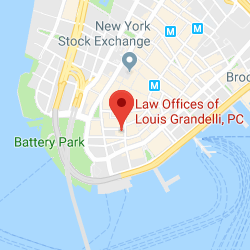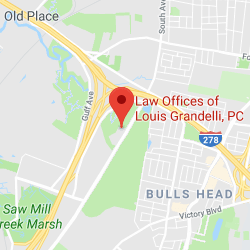The Law Office of Louis Grandelli, P.C. recently secured a $700,000.00 settlement on behalf of a Brooklyn construction worker who was seriously injured when a personnel hoist dropped on his right foot. His injuries required surgery and resulted in the amputation of his right big toe.
On September 30, 2008, the plaintiff, who was 43 years old at the time, was assisting in constructing a nine-story personnel hoist at a construction site in Manhattan. The subject project involved the development of a 9-story building at 114th Street and Frederick Douglass Boulevard, called “The Savannah,” which would contain 38 condominium units, with some additional commercial space.
The plaintiff was employed as a hoist mechanic’s assistant by Lift-Tech Elevator Services. The owner of the premises, UDC 114TH Street, LLC., retained the defendant, BRP Construction Group, LLC as general contractor for the project. BRP then hired plaintiff’s employer, Lift-Tech, as subcontractor to perform installation of a personnel hoist on the exterior of the building.
On the day of the accident, the plaintiff and a co-worker were running temporary electric lines with permanent electric cable through the hoist tower to connect it to the transformer supplied by BRP. As the plaintiff was standing inside the tower he claimed that the 6,000 pound hoist suddenly dropped without warning, crushing his right foot. He and his supervisor claimed that the hoist had dropped in a similar manner on previous occasions at the site. However, after performing investigations, OSHA and the New York City Department of Buildings determined that there were no defects with the hoist.
The plaintiff argued that the owner and general contractor of the site had violated Labor Law §240(1) by failing to provide adequate safety devices to the plaintiff, where there was a clear risk of “harm directly flowing from the application of the force of gravity to an object.
In addition, plaintiff argued that the defendants violated Labor Law §241(6) and Industrial Code §§23-7.1(c) and 23-7.2(b)(3) as they failed to ensure that the subject hoist car was erected and operated by “trained” and “qualified” designated persons in accordance with the requirements of those regulations.
The defendants opposed the plaintiff’s claims, arguing that the hoist had dropped as a result of human error by the plaintiff’s co-worker, and not as a result of any negligence on defendants’ part, or any violation of the Labor Law.
The plaintiff moved for partial summary judgment on the issue of liability, but the Supreme Court determined that issues of fact existed regarding the occurrence which warranted a trial by a jury. The case resolved following jury selection while an appeal of the Court’s decision by the plaintiff was pending.
If you or someone you know was injured in an accident at a construction site, please contact our office.




















